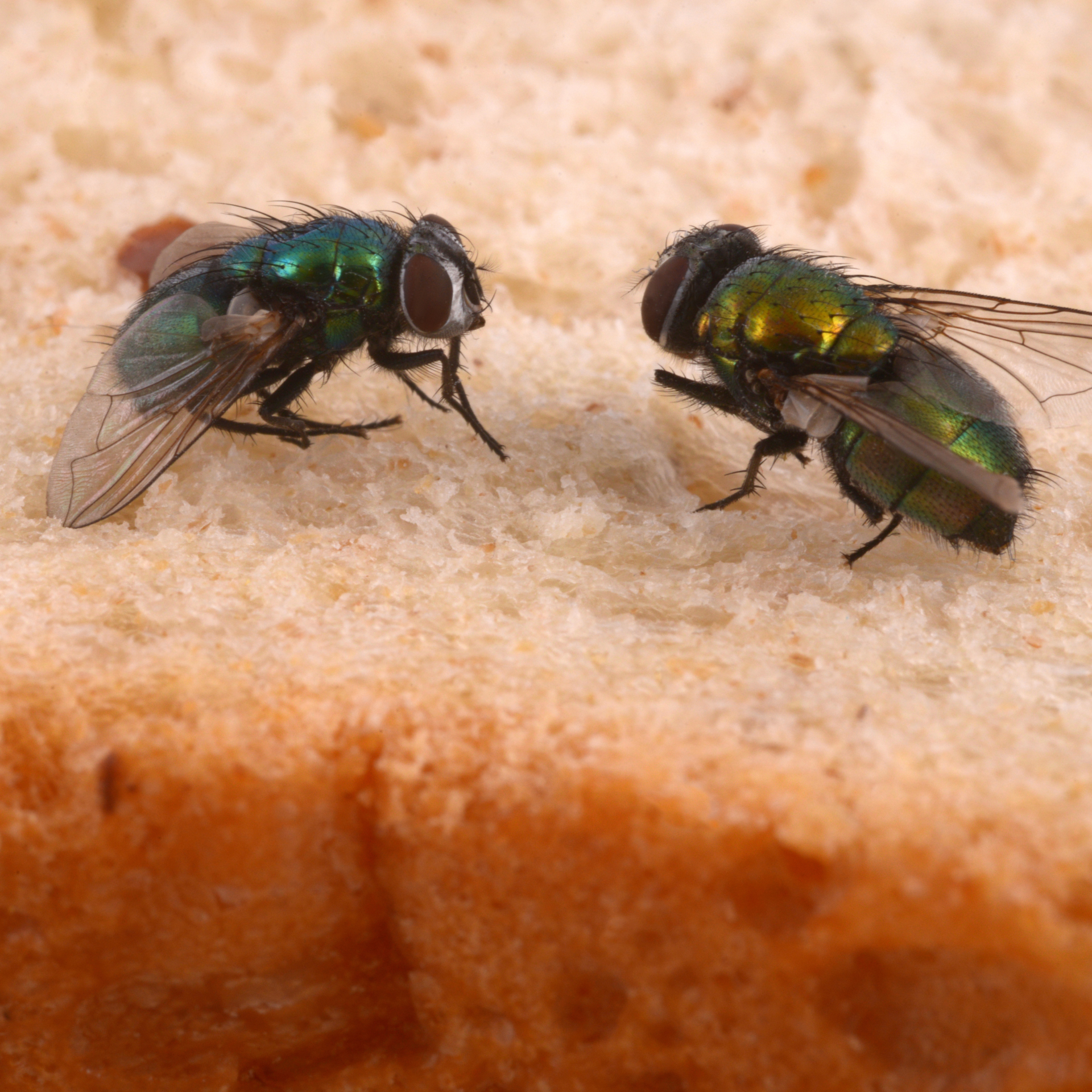Effective Fly Control: Protect Your Home from Unwanted Pests and Health Risks
Fly Control: Eliminate Flies and Protect Your Home
Flies are more than just annoying pests; they can carry diseases, contaminate food, and spread bacteria throughout your home. At SAPPHIRE Pest Control, we understand the frustration that comes with a fly infestation, whether it's a few buzzing around the kitchen or a larger problem impacting your living spaces. Our fly control services target the source of the infestation, eliminate existing flies, and provide long-term solutions to keep them away.
Why Fly Control Is Important
Flies are known carriers of numerous pathogens, including E. coli, salmonella, and other bacteria that can lead to foodborne illnesses. They frequently land on garbage, decaying matter, and animal waste before touching food, surfaces, and people, increasing the risk of contamination. Flies also lay eggs in organic material, quickly leading to more flies inside your home if the problem is not addressed.
In addition to being unsanitary, flies are a nuisance. The constant buzzing and swarming can make it difficult to enjoy your home, especially in areas like kitchens, dining rooms, or outdoor spaces. Professional fly control is essential to eliminate these pests, ensure a healthier environment, and prevent future infestations.
Contact Us
We will get back to you as soon as possible
Please try again later
How We Handle Fly Infestations
SAPPHIRE Pest Control uses a multi-step process to ensure your fly problem is completely resolved:
- Inspection: Our technicians start by inspecting your home and property to identify the source of the infestation. We look for breeding sites such as garbage cans, drains, compost piles, or areas with standing water.
- Targeted Treatment: Once we identify the fly species and breeding grounds, we apply targeted treatments to eliminate adult flies and larvae. This may include insecticide treatments, fly traps, and treating breeding sites to prevent further reproduction.
- Prevention: We also focus on preventing future infestations by identifying how flies are entering your home. We will advise installing screens, proper waste management or sanitation practices.
- Follow-Up Monitoring: Flies can be persistent, so our services include ongoing monitoring and follow-up visits to ensure the infestation is fully eliminated and that new fly populations don’t develop.
Common Types of Flies We Treat
- House Flies: The most common type of fly found in homes, house flies are known for contaminating food and surfaces. They breed in decaying organic material such as food waste, garbage, and manure.
- Fruit Flies: These tiny flies are attracted to overripe or fermenting fruits and vegetables, making kitchens and pantries their favorite spots.
- Drain Flies: Often found around sinks, tubs, and drains, these flies breed in moist, organic matter inside pipes.
- Blow Flies: Recognized by their metallic green or blue color, blow flies are often found near garbage, animal waste, or decaying organic matter.
Signs of a Fly Infestation
Flies are typically easy to spot, but there are other signs that can indicate a larger problem:
- Constant Presence: Seeing multiple flies inside your home, especially near food or garbage, is a clear sign of an infestation.
- Maggots: If you find maggots in your garbage cans or near decaying organic matter, it indicates that flies are breeding nearby.
- Fly Spots: Flies leave dark spots on walls, ceilings, and light fixtures. These spots are actually fly feces and can be found in areas where flies tend to land frequently.
- Buzzing Sounds: The constant buzzing of flies can signal that there are many flies inside your home, especially in kitchens and bathrooms.
Health Risks Posed by Flies
Flies pose significant health risks because they carry and spread bacteria and pathogens that can cause serious illnesses. Some of the most common health risks associated with flies include:
- Foodborne Illnesses: Flies can spread diseases like E. coli, salmonella, and Shigella by contaminating food and surfaces where food is prepared.
- Allergic Reactions: Fly droppings, saliva, and shed skin can cause allergic reactions in sensitive individuals.
- Eye Infections: Some species of flies, like face flies, are attracted to the moisture in the eyes, which can lead to irritation and even infections.
Safe and Effective Fly Control Solutions
At SAPPHIRE Pest Control, we use safe, targeted treatments to eliminate flies from your home and property. Our products and techniques are effective in removing flies while being safe for your family and pets once dry. We prioritize environmentally conscious methods to reduce the impact on non-target species and the environment.
Tips for Preventing Fly Infestations
While professional pest control is essential for eliminating an active infestation, there are steps you can take to prevent flies from becoming a problem:
- Proper Waste Management: Keep garbage tightly sealed, remove it regularly, and clean bins to reduce breeding sites.
- Clean Up Food and Spills: Wipe down counters and clean up spills promptly to eliminate food sources for flies.
- Fix Leaks and Eliminate Standing Water: Flies are attracted to moisture, so fixing leaks and removing standing water will reduce their breeding grounds.
- Use Screens: Install screens on windows and doors to prevent flies from entering your home, especially in warmer months.
Get Professional Fly Control Today
Flies can quickly turn from a small annoyance into a significant health risk if not properly controlled. Don’t let flies take over your home or yard—contact SAPPHIRE Pest Control today for professional fly control services. Our expert technicians will eliminate the infestation, prevent future problems, and restore your peace of mind. Schedule your inspection today!
Call Us Today at
903-456-7816 or
Flies are known to carry and transmit over 65 different diseases, including E. coli, salmonella, and cholera, and a single housefly can carry up to 6 million bacteria on its body and legs.
- Flies are responsible for spreading diseases that lead to over 600 million cases of diarrheal diseases globally every year.
- There are over 120,000 species of flies worldwide, with around 16,000 species identified in North America alone.
50%
of reported foodborne illnesses can be traced to flies contaminating food or surfaces.
500
eggs can be laid by a female housefly in her lifetime, and these eggs can hatch into larvae (maggots) within 12-24 hours.
1/3
of all pest-related housefly contamination in restaurants and homes are due to their attraction to food and organic waste.

What attracts houseflies to my home?
Houseflies are attracted to food, moisture, garbage, and decaying organic matter. They are commonly found around kitchens, trash bins, pet waste, and areas with standing water.
How do houseflies spread disease?
Houseflies pick up bacteria, viruses, and other pathogens when they land on garbage, feces, or decaying matter. When they land on food, countertops, or kitchen utensils, they transfer these contaminants through their legs, body, and saliva.
How can I prevent houseflies from entering my home?
To prevent houseflies, make sure windows and doors are properly sealed with screens, remove trash regularly, store food in sealed containers, and clean up spills promptly. Reducing moisture and eliminating standing water can also help deter flies.
How quickly do houseflies reproduce?
Houseflies reproduce rapidly. A single female can lay up to 500 eggs in her lifetime, and these eggs can hatch into maggots within 12-24 hours. Under optimal conditions, a full life cycle (from egg to adult fly) can take as little as 7-10 days, leading to fast-growing infestations.
What kind of treatments do you use to get rid of houseflies?
At SAPPHIRE Pest Control, we use safe, targeted treatments such as insecticides, fly traps, and baiting systems to eliminate adult flies and prevent future infestations. Our technicians also address breeding sites to stop the problem at its source.
Are fly treatments safe for my family and pets?
Yes, our fly control treatments are safe for your family and pets once they are fully dry. We focus on targeted applications to minimize exposure while effectively eliminating the fly population.

